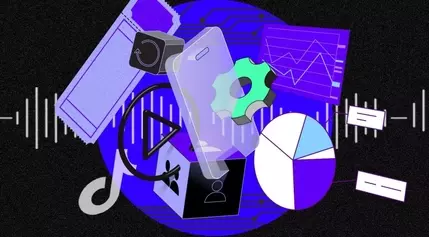The year 2025 is poised to be a transformative period for the music industry, marked by significant legal battles, technological advancements, and evolving business practices. From potential changes in social media platforms to increased scrutiny on streaming fraud and AI regulation, the sector faces numerous challenges. Additionally, concert ticket pricing strategies are becoming more sophisticated, while radio's role in music discovery remains crucial despite declining ad revenues. Meanwhile, biopics celebrating iconic artists continue to captivate audiences, and country music shows no signs of slowing down its growth.
TikTok's Uncertain Future and Legal Battles in the Music Industry
The U.S. Supreme Court's impending decision on TikTok's fate looms large over the music world. With national security concerns at stake, the platform may face a ban or forced sale, potentially disrupting how music is promoted online. This uncertainty highlights the broader issue of government intervention in digital spaces. Concurrently, Sean "Diddy" Combs' upcoming trial on serious charges has sent shockwaves through the entertainment community. The case underscores the increasing scrutiny faced by industry leaders regarding their conduct and accountability.
The potential banning of TikTok from the United States represents a pivotal moment for the platform and the music industry. If the Supreme Court upholds the ban, it could significantly alter the way artists and labels engage with fans, especially considering TikTok's role in viral hits and artist discovery. On the other hand, Diddy's trial not only affects his personal future but also raises questions about corporate responsibility and the impact of high-profile cases on public perception. Both scenarios underscore the delicate balance between innovation and regulation in today's rapidly changing media landscape.
Evolving Business Practices and Technological Innovations in Music
Concert ticket pricing is undergoing a transformation as algorithms and AI play an increasingly important role. Pricing models now incorporate data analysis and economic modeling to cater to diverse fan bases, although this trend has led to higher average ticket prices. Efforts to combat streaming fraud are intensifying, with new measures aimed at preventing artificial inflation of stream counts. Meanwhile, distribution consolidation continues, driven by major labels' desire to maintain market share amid shifting artist preferences.
The shift towards algorithmic pricing in concerts reflects a broader trend toward leveraging technology for more efficient business operations. While this approach ensures that tickets remain accessible across different income levels, it has also contributed to rising costs. Industry insiders hope that transparency initiatives will mitigate some of these effects. In parallel, the fight against streaming fraud is gaining momentum, with stricter regulations and innovative solutions like "Streaming 2.0" being explored. Distribution companies are also experiencing significant changes, with mergers and acquisitions reshaping the competitive landscape. These developments signal a period of intense adaptation and innovation within the music industry, as stakeholders navigate new challenges and opportunities.

